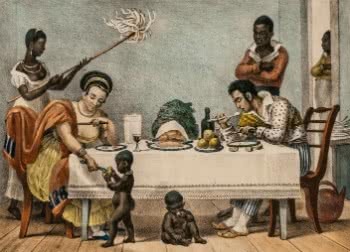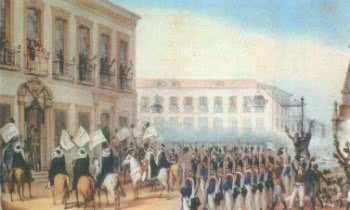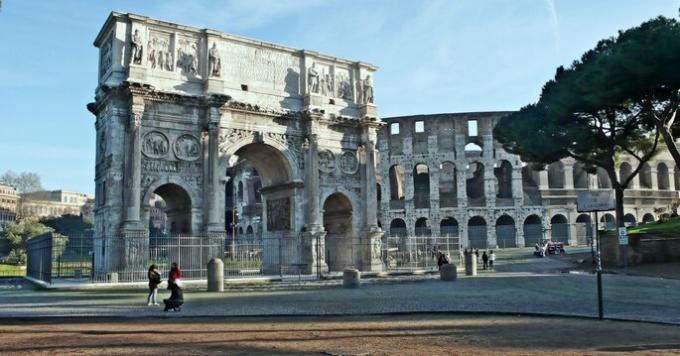Jean-Baptiste Debret (1768-1848) was a French painter who left a very important collection for the study of Brazilian history.
He was Napoleon's court painter, as well as being an official painter of the Portuguese Crown in Brazil. It is for this reason that his works portray official events and that he is considered a history painter.
Debret was responsible for organizing the first public art exhibition in our country, and he was the one who designed the flag of Brazil.
He was one of the founders of the Imperial Academy of Fine Arts (AIBA) in Rio de Janeiro.
Construction
In Brazil, his best known work is the Picturesque and Historical Journey to Brazil.
Before the illustrations that are part of this book are presented, check out some works that describe situations experienced by Napoleon Bonaparte.
 Napoleon and the Bavarian and Wurttemberg Troops
Napoleon and the Bavarian and Wurttemberg Troops
 Napoleon Bonaparte Decorating the Grenadier
Napoleon Bonaparte Decorating the Grenadier
Picturesque and Historical Travel to Brazil
In three volumes and 26 issues, published in 1834, 1835 and 1839, the illustrated book portrays the daily life of Brazil in the 19th century with special care.
In addition to the social concern, showing slaves and their activities, the work brings political events and presents Brazilian fauna and flora.
The illustrations in the book are followed by texts that explain each one.
In the first volume it portrays the indigenous culture, in the second, the relationship between whites and slaves. In the third and final volume, Debret is dedicated to the court and popular traditions.
 Landing of Dona Leopoldina in Brazil, 1817
Landing of Dona Leopoldina in Brazil, 1817
 The Dinner, 1820
The Dinner, 1820

Coronation of D. Peter I, 1828
 Slave Hunter, 1830
Slave Hunter, 1830
 Acclaim of D. Pedro II, 1831
Acclaim of D. Pedro II, 1831
 An Employee Out With His Family, 183
An Employee Out With His Family, 183
Biography
Jean-Baptiste Debret was born in Paris on April 18, 1768. He studied at the Academy of Fine Arts, having been a student of Jacques-Luis David, leader of neoclassicism and cousin of Debret.
He was a draftsman, painter, set designer, decorator and teacher. He was a painter at the court of Napoleon Bonaparte when he went to Brazil in 1816, as part of the so-called French Artistic Mission.
The mission, commissioned by the Portuguese Crown, aimed to teach the arts in the country.
He remained on Brazilian soil for 15 years.
In Brazil, he taught painting at his studio in Rio de Janeiro and later at the Imperial Academy of Fine Arts, which he helped found.
He traveled across the country portraying local landscapes and customs in his watercolors. organized the first public art exhibition in our country, the Academy's History Painting Class Exhibition, which took place in 1829.
After returning to Paris, he published the book Viagem Pitoresca e Histórica ao Brasil.
He died in Paris on June 28, 1848.
Read more:
Brazil's flag
neoclassicism
The coming of the Royal Family to Brazil



